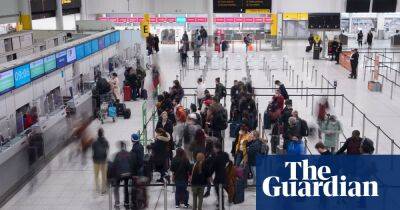Brexit's new migration borders 'fracture ties' of mixed UK-EU families
Brexit is not done for many British-European families, even two and a half years after the UK left the European Union.
"One of us is a UK citizen and one is a citizen of the EU. And we have lost the right to migrate as a family," said one British man living in Belgium, quoted in a new report — the latest for the MIGZEN project exploring the long-term impacts of Brexit on migration.
"Husband and daughter cannot return to UK and live there with me," said a British woman, currently in France.
The divorce deal that set the terms of Britain's departure was supposed to cement the existing rights of Europeans living in the UK and Britons on the continent, despite bringing to an end the principle of the free movement of workers.
But the research study finds high levels of anxiety among "mixed status" families — mostly where one partner is British, the other European. Just over a fifth of respondents said they were in such relationships.
"British-European families after Brexit" draws on the testimony of more than 400 British and European nationals to explore how the change of status within families impacted their lives.
It found that six years after the EU referendum, half said differences in citizenship and migration status had affected their decisions to move or stay put. There were still strong negative feelings over questions relating to entitlements, and anxiety relating to the loss of freedom to move from one country to another in future.
Depending on their previous migration status, Brexit either "introduced new borders" or "deepened the impacts of the borders on their lives," say the report's authors, Dr Elena Zambelli and Professor Michaela Benson of Lancaster University, and Professor Nando Sigona of Birmingham University.
"Thi
Read more on euronews.com





















